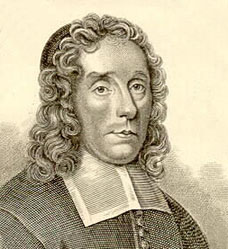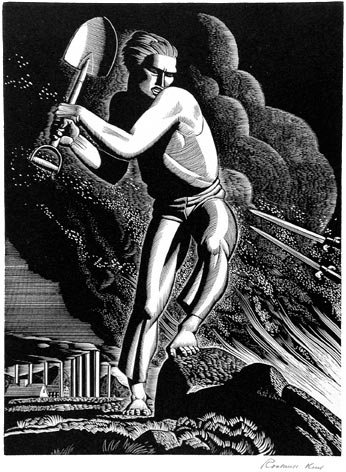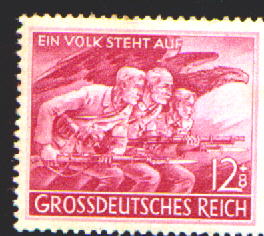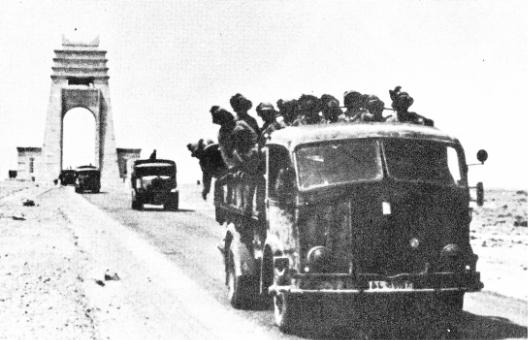
June 21

1607 The first Protestant Episcopal parish in America is established, in Jamestown.

1633 Italian scientist Galileo Galilei is found guilty by the Inquisition of "suspected heresy" for defending the Copernican heliocentric view of the world, in which the Earth and other planets are believed to orbit around the sun. Despite being forced to publicly repudiate the heliocentric view, he is still sentenced to an unlimited period of house imprisonment.

1639 Birth: Increase Mather, early American theologian. He will publish nearly 100 books, and will be credited with helping end executions for witchcraft in colonial America.

1684 King Charles II revokes the Massachusetts Bay Colony's charter. It will take seven years to get a new one, on 17 September 1691.

1774 Birth: Daniel D. Tompkins. "...entrepreneur, jurist, Congressman, Governor of New York, and the sixth Vice President of the United States. He was born in Fox Meadows (later Scarsdale), Westchester County, New York. He graduated from Columbia College in New York City, in 1795. He studied law, and was admitted to the bar in 1797, practicing in New York City. Tompkins was a delegate to the state constitutional convention in 1801, a member of the state Assembly in 1803, and was elected to the United States Congress, but resigned before the beginning of the term to accept an appointment as associate justice of the state supreme court, in which capacity he served from 1804 to 1807. He was Governor of New York from 1807 to 1817. He declined an appointment as United States Secretary of State by President James Madison. He was elected Vice President on the ticket with James Monroe in 1816, and was reelected in 1820, serving from March 4, 1817 to March 3, 1825. In 1815 Tompkins established a settlement and along the eastern shore of Staten Island that came to be called Tompkinsville. In 1817 he built a dock along the waterfront in the neighborhood and began offering daily steam ferry service between Staten Island and Manhattan. He was a delegate to the state constitutional convention in 1821, serving as its president. He died in Tompkinsville, three months after retiring as Vice President, and was interred in the Minthorne vault in St. Mark's Churchyard, New York City. There is evidence that Daniel Tompkins's middle name was Decius. However, others believe that he added the middle initial "D" (which stood for nothing) while a student at Columbia College, to distinguish himself from another Daniel Tompkins there. Tompkins County, New York, Tompkins Square Park in Manhattan, and the Town of Tompkins are named after him."
1788 The US Constitution officially goes into effect as New Hampshire becomes the ninth state to ratify it.
1791 French Revolution: In the early hours of the morning, King Louis XVI and Queen Marie Antoinette attempt an escape from Paris but get only as far as Varennes, where they are discovered and arrested.
1792 Vancouver meets the Spanish ships Sutil and Mexicana off Vancouver, British Columbia.
1813 Napoleon's brother Joseph, King of Spain, flees Madrid as he is defeated by Wellington at the battle of Vitoria. This virtually ends the French presence in Spain.
1834 Cyrus Hall McCormick is awarded a patent for the first practical reaper for farming.
1851 Birth: Daniel Carter Beard; will organize first boy scout troop in the US.
1859 Andrew Lanergan, of Boston, Massachusetts, receives the first rocket patent.

1859 Birth: Henry Tanner, artist.
1876 Death: Antonio Lopez de Santa Anna, Mexican general, at 82; took the Alamo.

1877 America's increasingly embattled coal miners take another hit as ten members of the Molly Maguires are hung for murder. A strident band of anthracite miners from Pennsylvania, the 'Mollies' had formed a few years earlier in hopes of improving the work conditions for their fellow miners. Indeed, coal miners received scant pay for toiling long hours in hot and hazardous conditions. The courts and other official channels offered the miners little refuge: mine operators used well-placed bribes to skirt around labor regulations and hold government inspectors at bay. The Mollies, who borrowed their nom de guerre from a radical Irish mining organization, chucked any notion of using official channels to effect change. Rather, like their Irish forebearers, they donned women's clothes and waged a campaign of violence and intimidation against the mine bosses. At first, the Mollies' brutal tactics had their intended impact and struck great fear into the hearts of Eastern Pennsylvania's mine officials. But, management soon fired back and hired an operative from the antiunion Pinkerton Detective Agency to infiltrate the sect. The Pinkerton operative was able to marshal enough evidence to bring twenty members of the Mollies to trial; though some labor historians still dispute the outcome of the case, ten of the Molly Maguires are nonetheless found guilty and executed. Duly cowed by this turn of events, the remaining members of the Molly Maguires will swiftly disband their organization.

1882 Birth: Rockwell Kent, artist, painter, illustrator. Born in Tarrytown, New York, Rockwell Kent's artistic education will include architecture studies at Columbia University, painting at the Shinnecock School, and printmaking under artists of the Ashcan School. While most famously a landscape painter and printmaker, Kent will also be a political activist, creating prints for politically charged magazines and contributing illustrations for American literary classics including Moby Dick and Canterbury Tales. See Also: 1607, 1684, 1877.
1893 The first Ferris wheel premiers at Chicago's Columbian Exposition.
1894 Workers at the Pullman sleeping car company in Pittsburgh begin their strike.
1898 A reporter covering the launch of HMS Albion on the Thames, in a hurry to file his story, misses the fact that 38 drown when a temporary jetty collapses.

1903 Birth: Al Hirschfeld, cartoonist; 1975 Tony Award.

1905 Birth: Jean-Paul Sartre, in France, philosopher, existentialist writer. Will be awarded the Nobel in 1964, which he will decline. "...Sartre was born in Paris to parents Jean-Baptiste Sartre, a naval officer, and Anne-Marie Schweitzer, cousin of Albert Schweitzer. He was 15 months old when his father died of a fever and Anne-Marie raised him with help of her father, Charles Schweitzer, who taught Sartre mathematics and introduced him to classical literature at an early age. As a teenager in the 1920s, Sartre became attracted to philosophy upon reading Henri Bergson's Essay on the Immediate Data of Consciousness. He studied in Paris at the elite École Normale Supérieure where, in 1929, he met fellow student Simone de Beauvoir. The two became inseparable and lifelong companions, though far from monogamous. Together they challenged the assumptions and expectations of their bourgeois upbringings. The conflict between oppressive, spiritually destructive conformity (bad faith/mauvaise foi) and an "authentic" state of "being" became the dominant theme of Sartre's work, a theme embodied in his principal philosophical work L'Etre et le Néant (Being and Nothingness) (1944). The most well-known introduction of Sartre's philosophy is his work Existentialism is a Humanism (1946). In this work, Sartre defends existentialism against its detractors, which ultimately lends itself to a 'dumbing down' of his ideas. This makes it a popular, if over-simplifying, point of entry for anyone wanting to know more about Sartre's ideas..."
1916 President Carranza orders his troops to attack American troops still on Mexican soil. 18 Americans are killed or wounded. The Mexicans warn that a repetition will occur unless Americans leave Mexico. Wilson refuses until order is restored along the border.
1919 Weimar: German Chancellor Scheidemann and Prime Minister Brockdorff-Rantzau resign.
1919 Weimar: By order of Admiral von Reuter, German sailors unexpectedly scuttle 72 surrendered warships at Scapa Flow in the Orkneys; the greatest act of self-destruction in modern military history.
1931 Birth: Margaret Heckler, US Secretary of Health and Human Services, 1983-85.
1933 The first Great Lakes-to-Gulf of Mexico barge trip ends, at New Orleans.

1933 The Stahlhelm is absorbed by the Nazis.
1933 Austria passes anti-Nazi measures.
1934 Hitler flies to Neudeck to see the dying Hindenburg. Hindenburg, appalled by the continued outrageous behavior of Roehm and the SA, vows that unless order is restored he will declare martial law and turn power over to the army.
1934 Holocaust: The German state of Franconia cancels the citizenship for all Jews naturalized between 1922 and 1929. (Edelheit)
1936 Church and Reich: The Bavarian government publicly reads the order dismissing all Catholic nuns teaching in the public schools.
1936 In Paris, French premier Leon Blum quits after the French senate denies him financial powers. Camille Chautemps forms a radical Socialist government, with Blum as vice premier.
1940 Richard M. Nixon weds Thelma Catherine 'Pat' Ryan.

1941 WW2: Hitler writes a letter to Mussolini attempting to justify his decision to invade the Soviet Union. "...As far as the war in the East is concerned, Duce, it will surely be difficult, but I do not entertain a second's doubt as to its great success. I hope, above all, that it will then be possible for us to secure a common food-supply base in the Ukraine for some time to come, which will furnish us such additional supplies as we may need in the future. I may state at this point, however, that, as far as we can tell now, this year's German harvest promises to be a very good one. It is conceivable that Russia will try to destroy the Rumanian oil region. We have built up a defense that will-or so I think-prevent the worst. Moreover, it is the duty of our armies to eliminate this threat as rapidly as possible..."

1942 WW2: Tobruk in North Africa falls to Rommel with the capture of 25,000 Allied troops.
1943 Holocaust: On Himmler's orders, doctors at Auschwitz select 73 Jewish men and 30 Jewish women who are then sent to the camp at Natzweiler in Alsace. There they are measured, weighed and gassed. Their corpses are then transported to the Anatomical Institute at Strasbourg where they are stripped of flesh for the institute's collection of Jewish skulls and skeletons. (see November 6, 1942, October 15,1944) (Atlas)

1943 WW2: US Marines land at New Georgia in the Solomons.
1945 WW2: American soldiers on Okinawa find the body of the Japanese commander, Lieutenant General Mitsuru Ushijima, who had committed suicide. "...Except for the Medeera pocket, front lines had almost disappeared by the evening of 21 June. Enemy troops, numbering between 15,000 and 18,000, were hiding in crevices in the great cliffs that walled the southern coast, in caves and ruined buildings, or in the brush, ditches, or coral. Some were waiting for an opportunity to surrender or were simply trying to evade American troops and prolong their own existence. Others, surrounded near Medeera, were fighting desperately with mortars and machine guns. Many of the Okinawa conscripts hoped to rejoin their families. Although the ratio of Japanese killed to American casualties increased favorably, the latter remained relatively high as infantrymen combed the tip of the island for snipers or fought through the streets of Medeera and Makabe. Disorganization of the enemy force did not lessen the need for aggressive action, although the same effort by the troops usually resulted in a greater number of enemy casualties than in the Shuri area. From the fall of Shuri until front lines disappeared, Tenth Army lost 1,555 men killed in action and 6,602 wounded..."
1946 Nuremberg War Crimes Trials: Albert Speer is questioned by Supreme Court Justice Jackson, Chief US Prosecutor at Nuremberg. "...MR. JUSTICE ROBERT H. JACKSON (Chief of Counsel for the United States): Now there has been some testimony about your relation to concentration camps, and, as I understand it, you have said to us that you did use and encourage the use of forced labor from the concentration camps. SPEER: Yes, we did use it in the German armament industry. MR. JUSTICE JACKSON: And I think you also recommended that persons in labor camps who were slackers be sent to the concentration camps, did you not? SPEER: That was the question of the so-called "Bummelanten," and by that name we meant workers who did not get to their work on time or who pretended to be ill. Severe measures were taken against such workers during the war, and I approved of these measures. MR. JUSTICE JACKSON: In fact, in the 30 October 1942 meeting of the Central Planning Board you brought the subject up in the following terms, did you not-quoting Speer: "We must also discuss the slackers. Ley has ascertained that the sick list decreases to one-fourth or one-fifth in factories where doctors are on the staff who examine the sick men. There is nothing to be said against SS and Police taking drastic steps and putting those known to be slackers into concentration camp factories. There is no alternative. Let it happen several times, and the news will soon get around." That was your recommendation? SPEER: Correct. MR. JUSTICE JACKSON: In other words, the workmen stood in considerable terror of concentration camps, and you wanted to take advantage of that to keep them at their work, did you not? SPEER: It is certain that concentration camps had a bad reputation with us, and the transfer to a concentration camp, or threat of such a possibility, was bound to reduce the number of absentees in the factories right from the beginning. But at that meeting, as I already said yesterday, there was nothing further said about it. It was one of the many remarks one can make in wartime when one is upset..."
1948 The first stored program to run on a computer is put through its paces on the Small-Scale Experimental Machine (Manchester Mark I), known as Baby, at Manchester University.
1953 Birth: Benazir Bhutto, former Pakistan Prime Minister, first female leader of a Moslem nation.

1957 Birth: Berke Breathed, cartoonist.
1960 Britain, France, the Netherlands and the United States agree to provide for the creation of a Caribbean organization for economic cooperation.
1964 Three civil rights workers - James Chaney, Andrew Goodman, and Michael Schwerner - disappear in Philadelphia, Mississippi, during the Freedom Summer, a project that brought hundreds of college students to help southern African Americans. An all-out search by the FBI will lead to the discovery of their murdered bodies in an earthen dam, and eventually to the conviction of seven Ku Klux Klan members.
1973 The US Supreme Court rules that states may ban materials found to be obscene according to local standards.
1977 Watergate: Former White House chief of staff H.R. Haldeman enters prison.
1977 Menachem Begin becomes Israel's sixth prime minister.
1981 French socialists under Francois Mitterrand gain a landslide victory in the second ballot of the general election.
1982 John W. Hinckley, Jr., who on 30 March 1981, shot President Ronald Reagan and three others outside a Washington, DC, hotel, is found not guilty of attempted murder by reason of insanity. In the trial, Hinckley's defense attorneys had argued that their client is ill with narcissistic personality disorder, citing medical evidence, and has a pathological obsession with the 1976 film Taxi Driver, in which the main character attempts to assassinate a fictional senator. His lawyers claim that Hinckley had watched the movie more than a dozen times, is obsessed with the lead actress, Jodie Foster, and had attempted to reenact the events of the film in his own life. The movie, not Hinckley, they successfully argue, is the actual planning force behind the events that occurred on 30 March 1981. On that day, in front of the Washington Hilton, Hinckley had fired six shots at the president, hitting Reagan and three of his attendants, including Press Secretary James Brady, who was shot in the head and suffered permanent brain damage. The president was shot in the left lung and the .22-caliber bullet just missed his heart. In the aftermath, Hinckley was overpowered and pinned against a wall, and President Reagan, apparently unaware that he'd been shot, was shoved into his limousine by a Secret Service agent and rushed to the hospital. The president fared well, and after 12 days in the hospital he returned to the White House.
1985 American, Brazilian and West German forensic pathologists confirm skeletal remains exhumed in Brazil are those of Nazi Dr Josef Mengele.
1989 The Supreme Court rules that burning the American flag as a form of political protest is protected by the First Amendment.
1990 Hungary officially re-launches the Budapest stock exchange, 42 years after its closure by the Communist Party; the first Western-style securities exchange in any Warsaw Pact country.
1995 Dr. Henry Foster loses a crucial Senate vote in his bid to become surgeon general as only 57 senators vote to cut off debate, three short of the 60 needed.
1996 EU leaders reach a deal with Britain to tackle the crisis over 'mad cow' disease; London agrees to abandon its disruption of EU business.
1999 President Bill Clinton visits Slovenia, formerly part of Yugoslavia, where he publicly urges Serbs to reject Yugoslav leader Slobodan Milosevic.
2000 Stonehenge opens to the public for the first time since 1985 to celebrate the first summer solstice of the New Millennium.
2001

2002

2003

2004

2005

2005

2005

2005

Visit:




 Visit:
Visit:

Click Here to email the History: One Day At a Time webmaster.